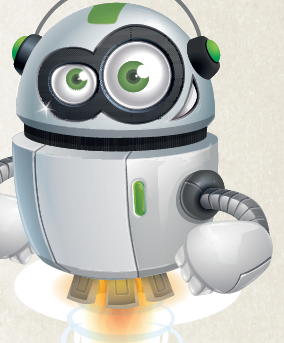FUTURE SMART
Is artificial intelligence (AI) the future? Will robots rule the world? Will they be dangerous? We asked four scientists these questions.
Dr Winsor:
‘I would say that we are not advanced enough to develop the computing power or the algorithms for fully functioning robots, although I do think it will happen within the next twenty or thirty years. We will probably remain in control of technology and it will help us solve many of the world’s problems. However, no one really knows what will happen if machines become more intelligent than humans. They may help us, ignore us or destroy us. I tend to believe AI will have a positive influence on our future lives, but whether this is true will be partly up to us.’
Dr Pooler:
‘I have to admit that the potential consequences of creating something that can match or surpass human intelligence frighten me. Even now, scientists are teaching computers how to learn on their own. At some point in the near future, their intelligence may well take off and develop at an ever-increasing speed. Human beings change biologically very slowly and we would be quickly superseded. In the short term, there is the danger that robots will take over millions of human jobs, creating a large underclass of unemployed people. This could mean large-scale poverty and social unrest. In the long term, machines might decide whether the world would be better without humans.’
Dr Castle:
‘Forget the movie image of a terrifying robot stamping on a human skull, and think what’s happening right now: military machines like drones, gun turrets and sentry robots are already being used to kill with very little human input. The next step will be autonomous ‘murderbots’ following orders but ultimately deciding who to kill on their own. It seems clear to me that this would be completely unethical and dangerous for humanity. We need to be very cautious indeed about what we ask machines to do.’

